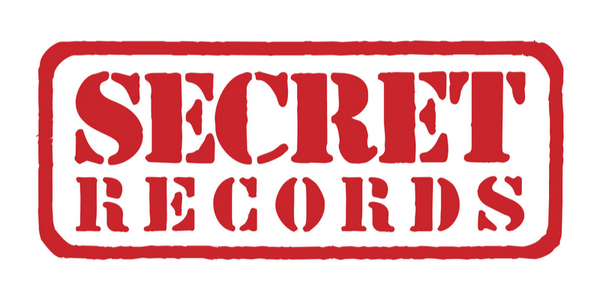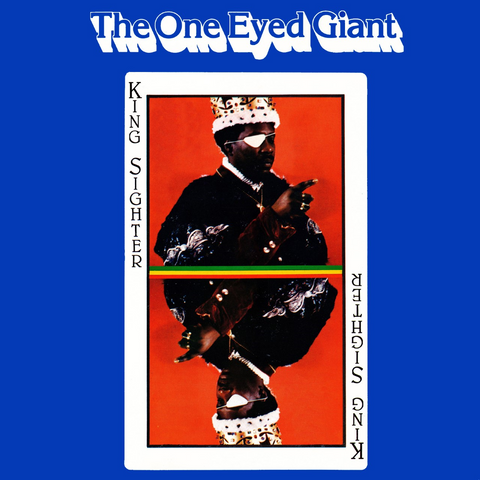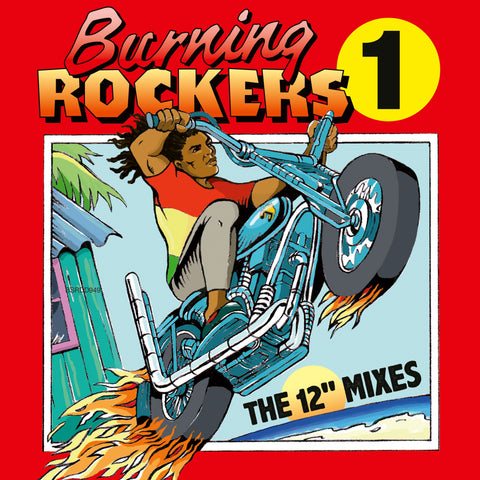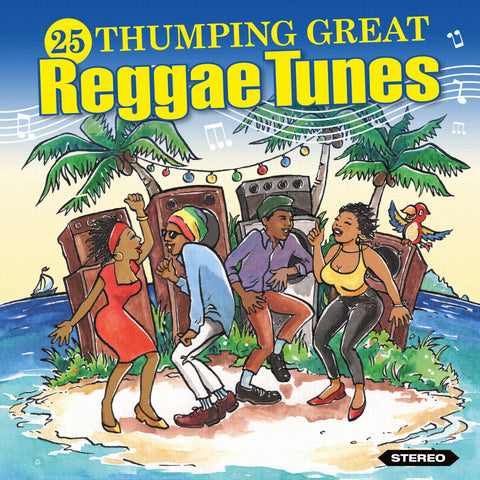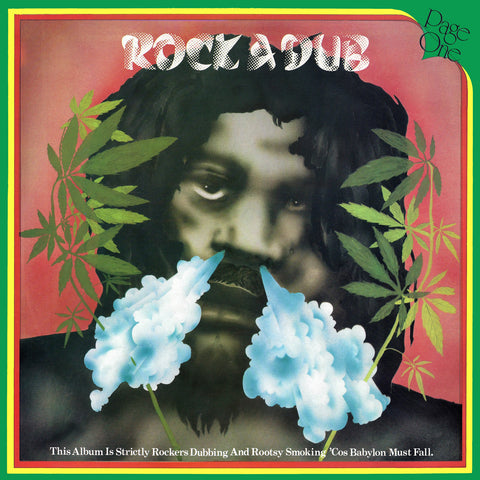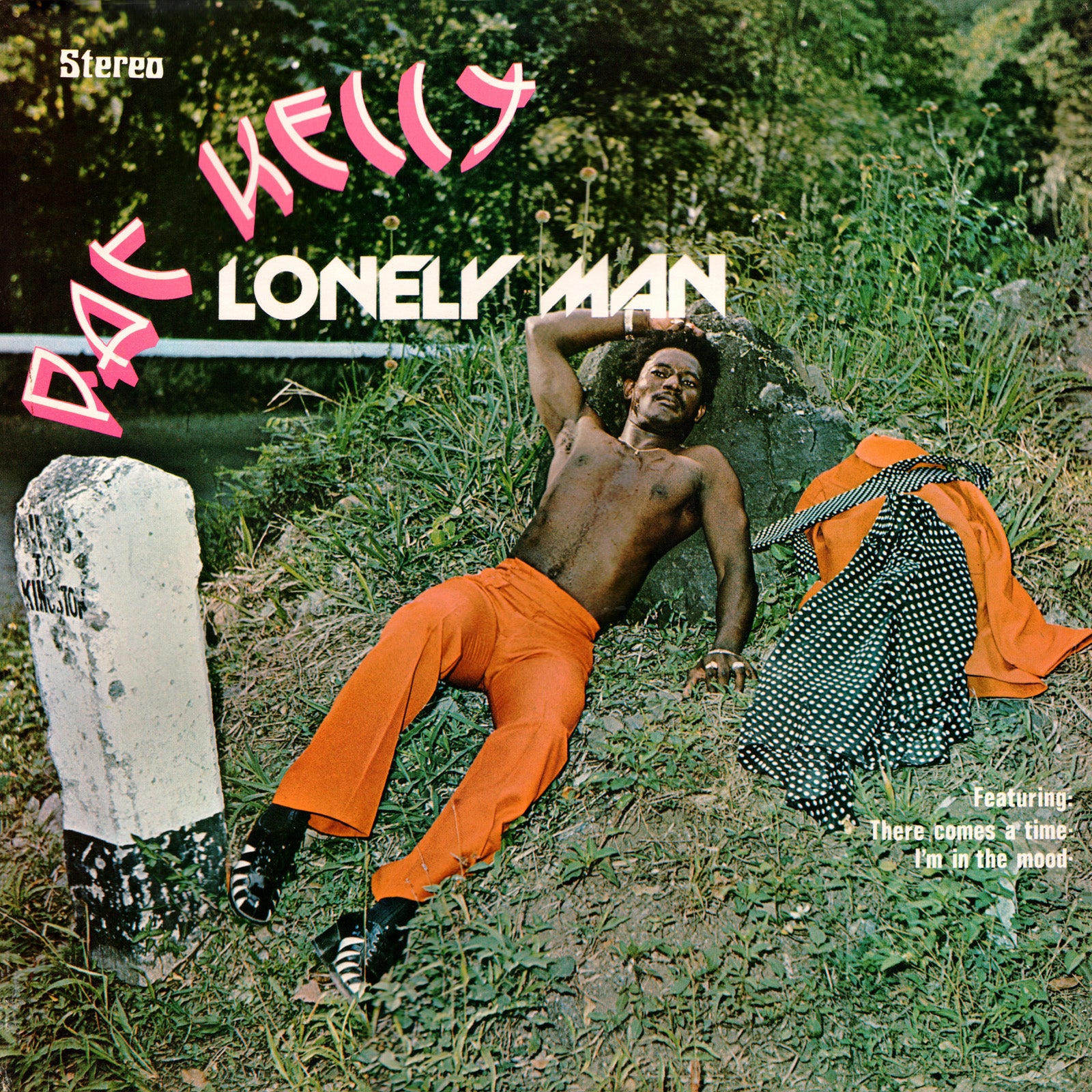

Pat Kelly
Pat Kelly - Lonely Man - CD Album
Format: CD
1978 Roots Reggae album reissued on 180 gram vinyl and on CD for the first time.
Born 1944 in Kingston, Jamaica Pat Kelly is rightly revered as one of the island's best ever singers although he is less well known for his considerable contribution to reggae music as a highly accomplished recording engineer. Always a keen hard working student, while studying Electrical Engineering at Kingston Technical High School, Pat worked part time at Chin's Radio Services on Church Street in downtown Kingston where the proprietor, Ivan Chin, operated one of Jamaica's first recording studios. Pat was awarded a scholarship to continue his education in Springfield, Massachusetts, USA where, after three years, he graduated with a degree in Advanced Electronics.
When he returned home Pat joined a local vocal group known as The Sheridons alongside Winston Francis, Owen Roberts and Edwin Brown who were rated as "the group in the area". They recorded "˜Merry Christmas' and "˜This Is My Last Letter' for Carlos Malcolm's Up Beat label, "˜Al Di Da' which was released on WIRL and "˜Relax With A Diamond' which came out on Kentone before going their separate ways in 1967. Pat was then asked to join The Techniques at Treasure Isle as a replacement for Keith "˜Slim' Smith who had left, together with Franklyn White, to form The Uniques with Roy Shirley under the auspices of Bunny "˜Striker' Lee. The Techniques first record with Pat on lead vocals, "˜You Don't Car', was a riveting rock steady version to The Impressions' "˜You'll Want Me Back' and spent six weeks at the Number One position on the Jamaican charts. It was followed up with "˜Queen Majesty', an interpretation of The Impressions' "˜Minstrel & Queen', and both songs have been endlessly versioned over the ensuing years. With Pat's soulful falsetto to the fore The Techniques created some of Duke Reid's greatest hits during the rock steady era, including "˜Love Is Not A Gambl', "˜It's You I Lov' and "˜My Girl', all emanating from his Bond Street studio.
In 1968 Pat left The Techniques and made his first solo recordings with starting with "˜Somebody's Baby' and, as the Rock Steady rhythms accelerated into the faster reggae style he sang "˜How Long Will It Tak'. The record was a huge hit and was one of the first to be overdubbed with a string arrangement for the UK market when it was released on the Palmer Brothers' Gas subsidiary the following year. Pat followed this up with another smash hit, "˜If It Don't Work Out', a version to John D. Loudermilk's "˜Then You Can Tell Me Goodby'. Both hits were showcased on his debut solo album, "˜Pat Kelley Sings', for Pama Records which was engineered by Lee "˜Scratch' Perry. Another big seller, the set included versions of "˜Dark End Of The Street' and "˜Tracks Of My Tears' and placed Pat as one of Jamaica's pre-eminent interpreters of classic soul songs. His UK tour in December 1969 was a resounding success with Jamaican expatriates and regga's new white audience... the skinheads. The Beatles allegedly tried to sign Pat to their Apple label with a proposed £25,000 deal but were unable to do so due to Pat's contractual commitments.
Pat Kelly continued to make hit records on his return to Kingston recording "˜Soulful Lov' and "˜Talk About Lov' for Phil Pratt and a cover of John Denver's "˜Sunshin' for Duke Reid. Pat also worked on a freelance basis as a recording engineer at Randy's, Channel One and King Tubby's studios where he was drafted in as a "˜temporary' replacement for "˜Princ' Phillip Smart in 1975 after Phillip had relocated to New York. He worked occasionally at Dromilly Avenue until the end of the decade and, although very few of his subtle, restrained mixes are named, the dub side of "˜Trod Along (Zion Pathway) by Ricky Storme (I Kong) on the Earth label credited to I Pat, demonstrated his mastery of the mixing board.
The popularity of roots reggae in the latter half of the seventies, when "˜Rockston' voiced chanters came to the fore, temporarily eclipsed sweet voiced singers but there was always a demand for accomplished vocalists and, in 1978, Pat began to record for Buster and Winston Riley. Winston was one of the original Techniques who, in the intervening decade, had established himself as one of Jamaica's leading record producers; his involvement with the Jamaican recording business reached back to its earliest days. Born in 1946 Winston grew up in West Kingston and, after leaving school, trained as a male nurse because he felt that music was not a career option... how ironic. His musical influences were The Rhythm Aces, Jimmy James and The Impressions and in 1962 Winston composed the first incarnation of The Techniques at Kingston Senior School and Chocomo Lawn Youth Club which was "developed by Edward Seaga". The original Techniques were Winston, Keith "˜Slim' Smith, Frederick Waite and Franklyn White and later Junior Menz, Jackie Parris, Bobby Davis, Bruce Ruffin, Jimmy Riley, Dave Barker, Lloyd Parks, Morvin Brooks, "˜Johnny' from "˜Johnny & The Attractions' and Pat Kelly would become members of the group. Each and every member was a superb singer in their own right all and would share lead and harmony duties. Their first record, "˜No On', was released internationally on Columbia and the group went on to record for Sonia Pottinger, Ken Khouri, Byron Lee and Ronnie Nasralla before Stranger Cole introduced The Techniques to Duke Reid down on Bond Street. Their first hit for Treasure Isle, "˜Little Did You Know', was an upbeat ska tune and, as the rhythms slowed down to the more elegant pace of rock steady, the group notched up hit after hit before Slim and Franklyn formed The Uniques whose first record, "˜Let Me Go Girl' proved to be "the baddest tune for 1967!". The Techniques, now with Pat Kelly and Bruce Ruffin, continued at Treasure Isle and went on from strength to strength.
Winston Riley borrowed money from his mother and took the singular step of forming his own Techniques label in 1968 with his younger brother Stanley who had sung with The Sensations and who was known as Buster in honour of Sir Alexander Bustamante. The first releases on the label, "˜Come Back Darling' by Johnny Osbourne and "˜Who You Gonna Run To' by The Techniques, proved to be major hits. Dave Barker, whose real name was Dave Crooks not Collins, had sung with The Techniques on searing tunes such as "˜Your Lov's A Gam' however Lee "˜Scratch' Perry reckoned that "Dave can do any damn thing man!". The following year Winston asked Dave to deejay over an Ansel Collins rhythm called "˜Double Barrel' and reggae historian Steve Barrow recalled that Buster inspired Dave to come up with his "I am the magnificent" introduction. The record was credited to Dave & Ansel Collins and, in early 1971, Dave Barker became the first Jamaican deejay to top the UK National Charts when "˜Double Barrel' was released on the Techniques label through Trojan Records in London. Winston Riley, Dave Barker and Ansel Collins then repeated their success when the follow up, "˜Monkey Spanner', hit the Number Seven spot in the UK National Charts later that year.
Winston Riley opened his Techniques Record Shop in Chancery Lane, off Kingston's North Parade, in 1972 and continued to make music that mattered from his downtown base. Throughout the period when roots music was in the ascendancy Winston produced some of the most incisive records of the genre including Donovan Adams' "˜Don't Mock Jah', The Interns' "˜Nothing Is Impossibl' and "˜Purify Your Heart' with Johnny Osbourne, deejay outings such as I Roy's "˜Who Is The Man' and Big Youth's "˜All Nations Bow' and one of the best dub albums ever "˜Meditation Dub'. Buster also started his own label named "˜Mummy' and hit with records including "˜Nuh Chuck It' by Dillinger and "˜Dark Destroyer' by The Mercenaries.
These three stellar talents, Winston, Buster and Pat, all returned to their rock steady roots for the "˜Lonely Man' album, a beguiling set of beautiful songs, expertly arranged and soulfully sung released on the Riley Inc. Label in Kingston and on Burning Sounds in London in 1978. Although seemingly out of step with the dread times the album struck a chord with record buyers who were looking for a less confrontational sound. "˜Lonely Man' helped to return Pat to the premier league of Jamaican vocalists with the new, younger audience and also established him as a favourite in the "˜big peoples' market along with albums "˜Give Love A Try' released in 1978, and "˜One Man Stand' in 1979. At the close of the decade Pat's beautiful "˜It's A Good Day', released on a Joe Gibbs twelve inch disco mix, was another classic record that broke down many more musical barriers.
The dance hall style was rapidly assimilated by Winston Riley and General Echo's "˜Slackest LP' from 1979 is now regarded as one of the foundation stones of dance hall music and Tenor Saw's cut to Winston's timeless "˜Stalag 18' rhythm, "˜Ring The Alarm', was a key crossover record whose popularity has never ceased since its release in 1985. And, as computer generated rhythms took over, Winston started recording with one of the guiding lights of the genre Wycliffe "˜Steely' Johnson. In 1993 he moved into brand new state of the art premises at 99 Orange Street where he continued to be a significant force in the Jamaican music business with both new releases and the enduring popularity of his remarkable back catalogue. As a hit maker for half a century Winston Riley had the satisfaction of knowing that he invariably created top quality music without a sell by date but he tragically died after being shot in Kingston on 19th January 2012; he was predeceased by Stanley "˜Buster' Riley who died on 19thApril 2011 after being diagnosed with cancer.
One of Jamaica's finest and most popular singers Pat Kelly has never stopped singing and the popularity of his countless classic records will continue for as long as people listen to music.
Produced by: Stanley "˜Buster' Riley & Winston Riley
Musicians:
Drums: Carlton "˜Carli' Barrett, Carlton "˜Santa' Davis & Michael "˜Mikey Boo' Richards
Bass: Carlton "˜Family Man' Barrett, George "˜Fully' Fullwood & Robert "˜Robbi' Shakespeare
Guitar: Radcliffe "˜Duggi' Bryan, Albert Valentine "˜Tony' Chin, Willie Lindo & Earl "˜Chinna' Smith
Piano: Harold Butler, Ansel "˜Pinki' Collins, Tyrone "˜Organ D' Downie & Winston "˜Brubeck' Wright
Organ: Ansel "˜Pinki' Collins & Earl "˜Wir' Lindo
Horns: Bobby Ellis, Jerome Francisque, David Madden, Herman "˜Seventh' Marquis & Tommy McCook
Percussion: Michael "˜Mikey Boo' Richards, Denzil "˜Pops' Laing, Uzziah "˜Sticky' Thompson & Winston Riley
Vocals: Pat Kelly
Backing Vocals: Pat Kelly, Cynthia Schloss, Cynthia Richards & Winston Riley
Horns Arranged by: Pat Kelly & Winston Riley
Recorded at: Harry J Recording Studio, 10 Roosevelt Avenue, Kingston 6, Jamaica
Engineer: Sylvan Morris
Joe Gibbs Recording Studio, 24 Retirement Crescent, Kingston 5, Jamaica
Engineers: Errol "˜ET' Thompson & Pat Kelly
Mixed at: Federal Recording Studios, 220 Marcus Garvey Drive, Kingston 11, Jamaica
Mixed by: George Raymond *under the special supervision of Winston Riley
Tracklisting:
1. Lonely Man
2. Broken Homes
3. There Comes A Time
4. Best Time Of My Life
5. Love O' Love
6. After Effects
7. I'm In The Mood
8. I Still Love You
9. Sit And Cry
10. You, You, You
